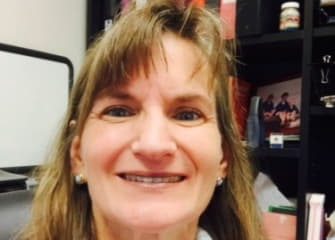
Katharine Whartenby, Ph.D.,
BALTIMORE--(BUSINESS WIRE)--Akers Biosciences, Inc. (Nasdaq: AKER), today announced that its proposed merger partner MyMD Pharmaceuticals, Inc., a clinical stage pharmaceutical company committed to extending healthy lifespan by focusing on developing two therapeutic platforms, has completed the formation of its Scientific Advisory Board. The board will be chaired by Katharine Whartenby, Ph.D., associate professor at the Johns Hopkins University School of Medicine Department of Neurology, Department of Oncology and in Cellular and Molecular Medicine.
“Each member of our Scientific Advisory Board was hand-selected for their wealth of knowledge and passion in the areas of autoimmune, aging and age-related diseases,” said Chris Chapman, M.D., President and Chief Medical Officer at MyMD Pharmaceuticals.
“I’m honored to work alongside true leaders in these fields,” said Katharine Whartenby, Ph.D., Chair of the Scientific Advisory Board. “We have an excellent opportunity to help shepherd MyMD Pharmaceuticals’ pipeline of therapeutic platforms to address many of the unmet needs in medical treatment today.”
“I am excited to be in a position to help shape the development of MYMD-1 through my experience in studying age-related conditions such as sarcopenia and physical frailty,” said member Jeremy Walston, M.D.
Members of the MyMD Scientific Advisory Board include:
Chair, Katharine Whartenby, Ph.D., The Johns Hopkins University School of Medicine
Katharine Whartenby, Ph.D., is an associate professor in the Department of Neurology, Department of Oncology and in Cellular and Molecular Medicine at The Johns Hopkins University School of Medicine.
Jeremy Walston, M.D., The Johns Hopkins University School of Medicine
Jeremy Walston, M.D., is the Raymond and Anna Lubin Professor of Geriatric Medicine and Gerontology at the Johns Hopkins University School of Medicine, Director at the Biology of Healthy Aging Program and Co-Principal Investigator of the Older American Independence Center.
Scott Freeman, M.D., Co-Founder and Clinical Advisor at MindMed
Scott Freeman, M.D., is a physician- scientist with extensive experience in laboratory and clinical therapeutics development. He has been a leader in research and development in academic and industry settings and most recently co-founded MindMed. His experience in clinical trial design and implementation along with his FDA regulatory strategy will provide an invaluable contribution.
Ryan Vandrey, Ph.D., The Johns Hopkins University School of Medicine
Ryan Vandrey, Ph.D., is a professor of Psychiatry and Behavioral Sciences. Dr. Vandrey's research focuses primarily on the behavioral pharmacology of cannabis (marijuana) and includes controlled laboratory studies with adult research volunteers, clinical trials, web-based survey research, and natural history studies with patient populations using cannabis/cannabinoids for therapeutic purposes.
Alison O’Mahony, Ph.D., Eurofins Discovery
Alison O’Mahony, Ph.D., is the Vice President of Translational Biology in the Phenotypic Services Unit of Eurofins Discovery. She has extensive expertise in translational biology in the areas of autoimmunity, inflammation, fibrosis, immuno-oncology (I-O), cardiovascular, skin, pulmonary diseases and oncology.
Anupama Kumar, M.B.B.S., The Johns Hopkins University School of Medicine
Anupama Kumar, M.B.B.S., is a Research Associate, Department of Psychiatry and Behavioral Sciences, Johns Hopkins School of Medicine. Anupama is also the Co-Director of Johns Hopkins TREAT Depression Clinic and is skilled in planning and running Phase II and III clinical trials.
About MyMD Pharmaceuticals, Inc.
MyMD is a clinical stage pharmaceutical company committed to extending healthy lifespan by focusing on developing two therapeutic platforms. MYMD-1 is a drug platform based on a clinical stage small molecule that regulates the immunometabolic system to control TNF-? and other pro-inflammatory cytokines. MYMD-1 is being developed to treat autoimmune diseases, including those currently treated with non-selective TNF-? blocking drugs, and aging and longevity. SUPERA-CBD is a drug platform based on a novel (patent pending) synthetic derivative of cannabidiol (CBD) that targets numerous key receptors including CB2 and opioid receptors and inhibits monoamine oxidase. SUPERA-CBD is being developed to address the rapidly growing CBD market, that includes FDA approved drugs and CBD products not currently regulated as a drug. For more information, visit www.mymd.com.


































